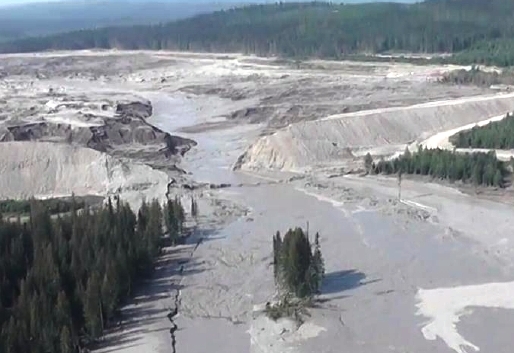Two years after one of the worst mine disasters in Canada’s history, mine officials in British Columbia are rolling out new mining codes.

They say the new codes will improve safety, prevent future disasters like the Mount Polley mine disaster in 2014, and increase transparency. B.C. officials announced the changes to the Canadian province’s mining code Wednesday afternoon, following all of the recommendations from an independent expert review panel.
Bill Bennett, B.C.’s minister of energy and mines, said the changes include updated design standards and management for tailings storage facilities, or TSFs.
“These changes ensure that there are design standards for TSFs that are tailored to the particular conditions that are encountered in B.C. The changes for TSFs and dam safety emphasized protection for the public and the environment,” he said.
TSFs hold all of the waste from a mine. The independent review found that Mount Polley’s had a poor design and build — a key failure that led to the disaster.
Al Hoffman is the chief inspector of mines. He said the goal is to prevent big disasters from happening again.
“This is an area that we didn’t see as a significant risk, the mining industry didn’t see it as a significant risk, but we’ve realized it’s there now and we’ve worked very hard on these code revisions,” Hoffman said, “and I think that we’ve filled in a lot of those cracks so it’s very unlikely it would happen again.”
Other changes include creating independent tailing review boards, to help make sure the mines are in compliance, updating the permit applications process and posting all inspection documents and board activity overviews online.
Officials are planning to address more than a dozen recommendations from another report by the end of next year.
Guy Archibald is with the Southeast Alaska Conservation Council. He said that while the code changes are good, there’s still work to be done, especially when it comes to transboundary issues.
“We do we need international oversight for these mines, these are international waters,” Archibald said. “There are international fish and wildlife — they don’t respect that line of the map — and the tribes have relatives on both sides of the border.”
He said in the future, he’d like to see more collaboration with people affected on Alaska’s border.
The Mount Polley mine will open again next month.




